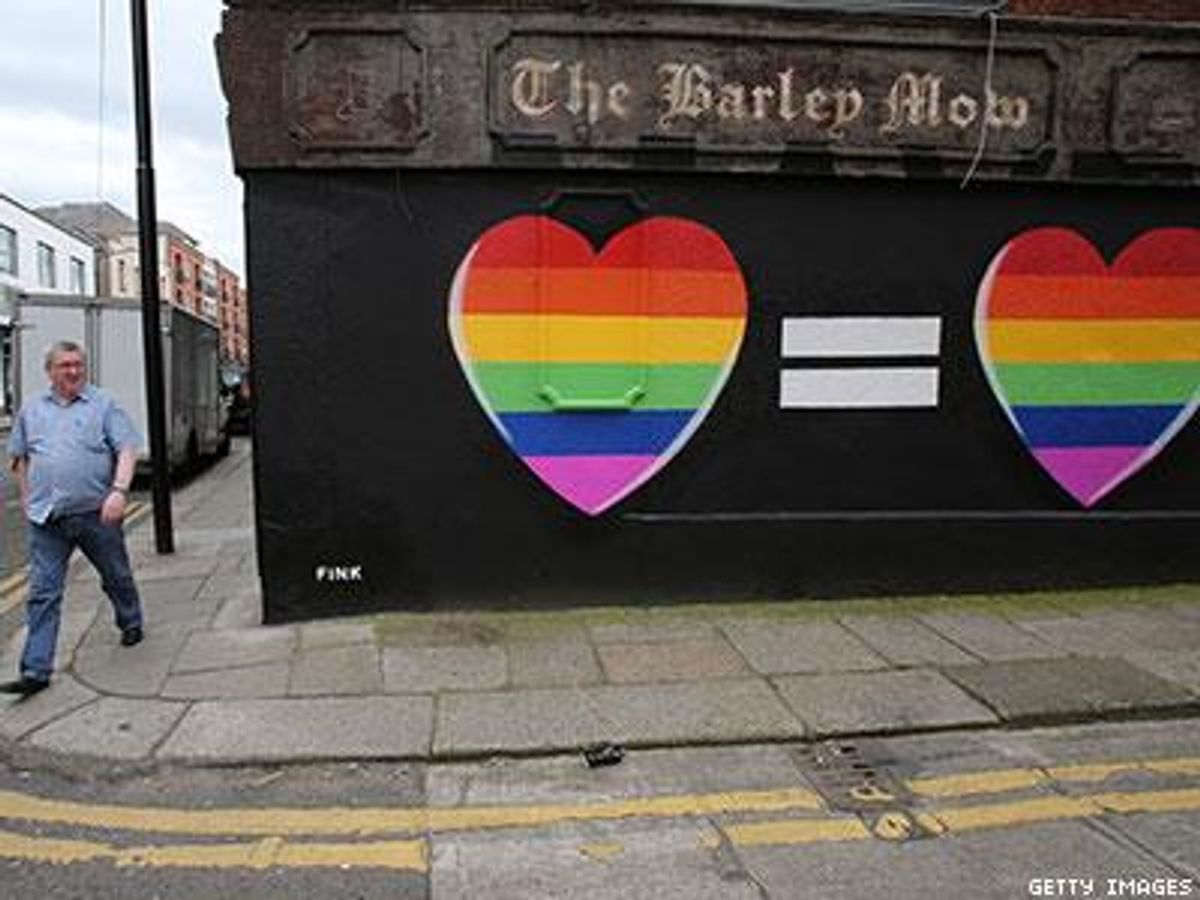As all eyes in this nation are locked on the Supreme Court while those nine justices weigh whether to finally bring marriage equality to all 50 states, another country -- Ireland -- is approaching a historic milestone in the long winding road toward full equality.
On May 22 (that's tomorrow!), voters in Ireland will go to the polls and be confronted with a very simple question: whether or not to make their nation just a bit more equal and allow loving same-sex couples to marry. Worldwide, 20 countries have recognized same-sex couples' right to marry and two others -- the United States and Mexico -- allow same-sex couples in certain jurisdictions to marry. Ireland will be the first country in the world to vote on a national referendum on marriage equality, and voters in Ireland have an opportunity to bump the number of marriage equality nations from 20 to 21 (while here in the U.S. we wait for the Supreme Court to make us number 22).
Polls in Ireland are positive, and the spectrum of Ireland's political parties have endorsed marriage equality. But as history has taught us, equality cannot be taken for granted. In the words of Dr. Martin Luther King, Jr., "The arc of the moral universe is long, but bends toward justice." However, we must not allow ourselves to be tricked into believing that arc will inevitably bend toward justice.
In this country, there is perhaps no better example of that than the passage of Proposition 8 in California. Election night in 2008 is a night I'll never forget, not only because of the overwhelming pride I felt as Americans elected the first African-American president in history, but also the stinging defeat as Californians went to the polls and voted to take away the right of their LGBT brothers and sisters to marry the person they love and enshrine discrimination in California's constitution. The passage of Proposition 8 cast a dark shadow on the state for nearly five years and sent a devastating message to LGBT youth across the state and the country: Your friends, family and neighbors think you are less than.
We fought Proposition 8 all the way to the Supreme Court, which finally returned marriage equality to California in June 2013. Since the court's ruling in that case and U.S. v. Windsor, striking down the federal government's definition of marriage as between a man and a woman under the Defense of Marriage Act, we've witnessed a wave of victories for LGBT equality. More than 70 percent of Americans live in one of the 37 states that recognize same-sex couples' right to marry, and more than 60 percent of Americans support marriage equality. And now, as we stand on the cusp of the most monumental legal victory in the history of the LGBT-rights movement, supporters of equality must understand this fight extends beyond our borders.
Those who wish to continue treating LGBT people around the globe as separate and unequal certainly understand that reality. It was just recently Brian Brown of the National Organization for Marriage, an American organization that is now exporting hate abroad as their battle appears all but lost in the U.S., penned a fundraising email to supporters urging support of the anti-marriage quality campaign in Ireland. According to Brown, if marriage equality opponents in Ireland can be successful it will be a "tremendous boost" to all those who wish to exclude same-sex couples from marriage.
We cannot allow the Brian Browns of the world to be successful, not in Ireland or anywhere else. And so that is why I ask all Irish Americans to urge friends and family back home to vote for equality on May 22. Progress cannot be halted, but as Proposition 8 taught us, it can be delayed. And the consequences of that delay can inflict irreparable harm on those who simply want to live their lives married to the person they love.
Love can't wait, and it won't any longer, not in this country or in Ireland.
 CHAD GRIFFIN is the president of the Human Rights Campaign.
CHAD GRIFFIN is the president of the Human Rights Campaign.


 CHAD GRIFFIN is the president of the
CHAD GRIFFIN is the president of the 















































































Viral post saying Republicans 'have two daddies now' has MAGA hot and bothered